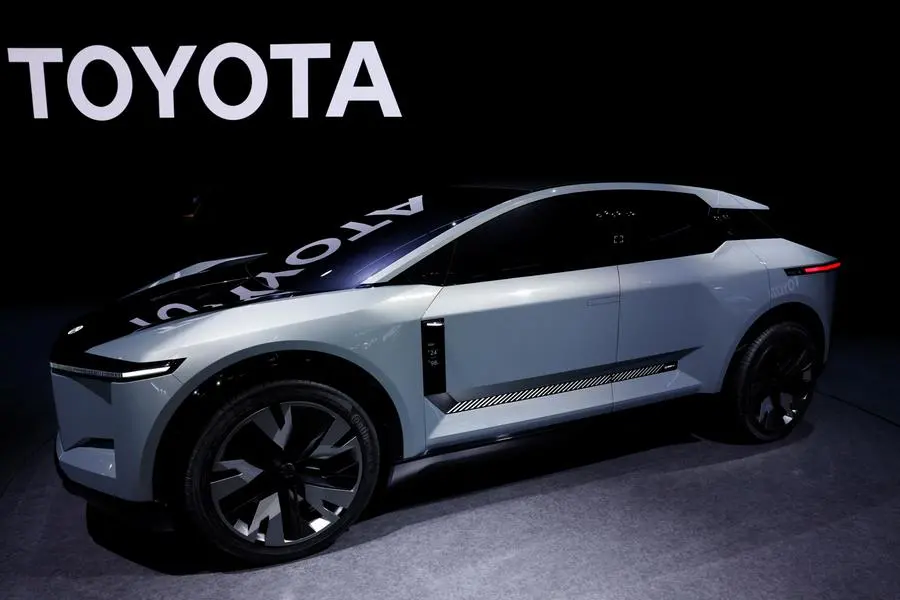PHOTO
Toyota will soon test a new electric pick-up truck in Thailand, its executive said, its latest effort to boost EV sales in the country where rising competition from Chinese rivals challenges its dominance.
Chinese electric vehicle (EV) makers are rapidly gaining market share in Thailand and have pledged some $1.5 billion investment for new manufacturing facilities there, part of their drive to expand overseas amid slowing domestic sales.
Pras Ganesh, executive vice president of Toyota Daihatsu Engineering & Manufacturing, said that its engineers were working on adapting its electric pickups to local conditions and building up EV R&D capacity in Thailand, one of Toyota's five global R&D centres.
The world's top-selling automaker unveiled the electric version of its popular HiLux pickup truck last year but hasn't said yet when its commercial sales would begin.
Its launch in Thailand would mark a fresh attempt by Toyota to counter mounting Chinese competition there after sales of its bz4X electric SUV, which began last year, were dwarfed by sales of rivals including BYD and Great Wall Motor .
Pick-up trucks are critical to Thailand's auto market, accounting for nearly half of all vehicle sales last year, and Toyota, according to research firm MarkLines, had a 39% market share in the one-ton pickup truck segment in the first nine months of this year.
Across all Thai automotive segments, Toyota is the market leader with 34% of new vehicle sales.
Ganesh said a small batch of battery EV pickups will be trialled in the beach city of Pattaya early next year and tested for use as 'songthaews', pickups that are commonly modified for use as taxis in many Southeast Asian countries.
"We will first start looking at public transit," he told Reuters, adding Toyota is also considering testing other EV pickups for deployments including last-mile delivery services.
EVs are accounted for about half of all EV sales in the Southeast Asia region in the second quarter, and are gaining traction in Thailand, where they are likely to account for less than 9% of total vehicle sales this year, according to researchers BMI.
Toyota, and its group companies, has invested nearly $7 billion in Thailand over the last decade, and the carmaker told Reuters in July that it is considering producing EVs there.
For the current fiscal year ending March 2024, however, Toyota lowered on Wednesday its forecast for global battery EV sales by 39% partly due to limited vehicle lineups. (Reporting by Chayut Setboonsarng, Additional reporting by Daniel Leussink; Writing by Devjyot Ghoshal; Editing by Miyoung Kim and Miral Fahmy)





















